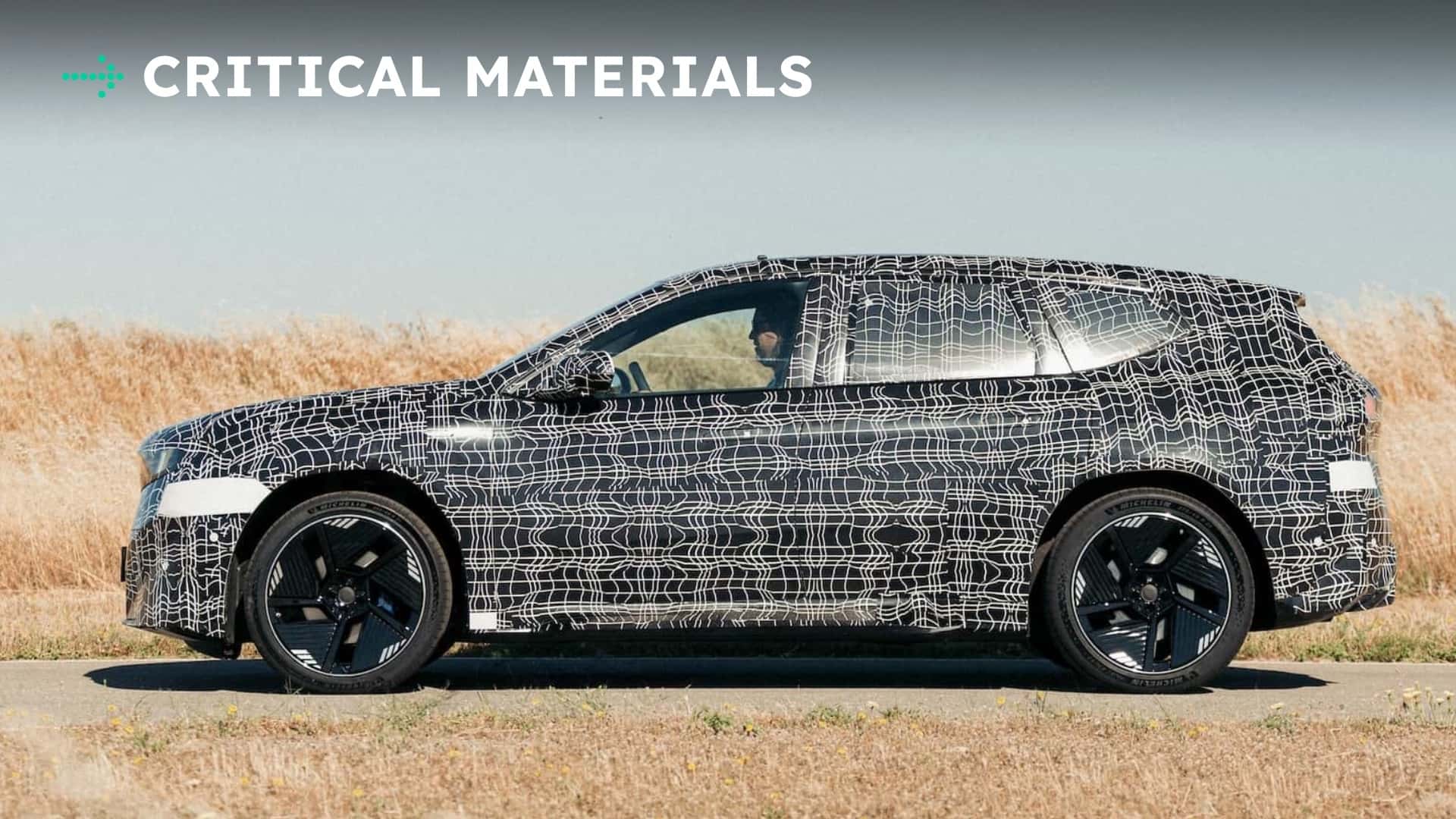
All the noise about bringing manufacturing back to America is tone-deaf. That was already underway, driven by the Inflation Reduction Act. The law aimed to reduce U.S. reliance on China’s supply chains, in part by discouraging the use of Chinese batteries but also by investing in the cutting-edge technologies of the future, including clean energy.
Now, with EV tax credits set to expire on Sept. 30, General Motors and BMW think it makes more sense to return to buying cheap Chinese batteries, at least in the short term.
Welcome back to the Friday edition of Critical Materials, your daily round up of news and events shaping the world of electric cars and technology.
Also on the deck today: The Chinese government has intervened amid the country's brutal EV price war. Plus, Shell will dismantle the Volta charging stations this year. Consolidation is coming for EV charging companies, as they focus on fewer but fancier and higher-powered stations.
Let’s begin.
30%: Why GM And BMW Are Buying More Chinese EV Batteries

General Motors and BMW likely would have used U.S.-made batteries for their upcoming EVs if the federal credits weren’t ending years ahead of schedule.
The $7,500 consumer tax credit helped buyers offset the high cost of EVs, which primarily comes from batteries, while automakers worked to bring more production stateside and localize the supply chain.
Then the U.S. government flipped the kill switch on clean energy programs. Now, GM and BMW are falling back on China’s expertise in battery manufacturing.
The Wall Street Journal reported on Thursday that GM will purchase lithium iron phosphate (LFP) batteries from CATL, the world’s largest battery manufacturer, for the next-generation Chevy Bolt EV.
Yes, they will face tariffs of about 80%, but CATL’s scale and expertise means they might still make economic sense for GM.
GM’s primary battery supplier, Korea’s LG Energy Solution (LGES), will start converting its battery plant in Tennessee for local LFP production at the end of this year. The conversion won’t be complete until the end of 2027.
The Bolt EV will have to be powered by CATL’s LFP batteries until the LGES plant can get up on its feet.

BMW is in a similar situation. Its battery supplier Automotive Envision Supply Corporation—a Japanese battery maker with several plants in China—paused the construction on two plants early this year due to “policy and market uncertainty.”
AESC’s South Carolina factory was supposed to supply cells to BMW’s own battery assembly plant in Woodruff, SC.
Automotive News reported on Thursday that AESC will now import batteries made in its plants in China, which could be cheaper to produce there despite U.S. tariffs—the company already has an established supply chain network and the required scale to make cheap batteries in China.
Regardless of where the batteries come from, EV choices for buyers are about to get a lot more exciting. GM will launch the new Chevy Bolt EV early next year. And BMW’s Neue Klasse iX3 is imminent, too. In an early prototype drive earlier this year, an iX3 prototype blew us away.
60%: Shell Will Shut Down Its Volta EV Chargers

Volta’s network of more than 2,000 EV chargers will be dismantled by the end of this year, AdExchanger reported this week. Shell had acquired Volta Charging back in 2022 and now wants to focus on high-speed public fast-charging stations with Shell branding instead, the outlet reported.
The company’s charging stalls had a unique advertising feature, thanks to an additional screen, which was part of the reason Shell acquired the company in the first place. But Volta’s $2 billion valuation cratered fast as the business model didn’t quite take off, with Shell purchasing it for just $169 million.
While the removal of 2,000 EV charging stations is bad news, the consolidation trend in the industry is hardly surprising. As InsideEVs reported in July, U.S. charging networks are still expanding, but the emphasis has shifted to fewer, larger sites equipped with higher-powered stalls and amenities like restrooms, cafes and Wi-Fi.
90%: China's EV Sales Slow Down After Govt. Acts On Price War

China is cracking down on the predatory discounts carmakers were offering on their EVs, which risked putting smaller players out of business due to unhealthy competition.
As Bloomberg reported on Friday, China’s Passenger Car Association is seeing fewer models with price cuts, which has also resulted in car sales dropping, although not at an alarming rate.
Car sales grew about 6.3% in July in China, slower than the 15% rate that’s typically seen around this time of the year, PCA said.
Top government officials in China convened a meeting with the country’s biggest EV makers urging them to self-regulate and stop offering unreasonable discounts.
100%: EVs Are Moving Into High Gear. What Are You Looking Forward To?

Despite all the bad news for EVs lately, automakers are preparing to bring to market a whole range of new models. The next-gen Nissan Leaf will go on sale in the fall. The next-gen Chevy Bolt EV is expected to be available early next year. BMW’s first Neue Klasse model is right around the corner. And Ford is cooking something big, which we’ll learn more about next week.
Which one are you the most excited about? Do you care where their batteries come from? Do you even have EVs on your radar, or are you looking at hybrids?
Leave your thoughts in the comments.
Have a tip? Contact the author: Suvrat.kothari@insideevs.com







